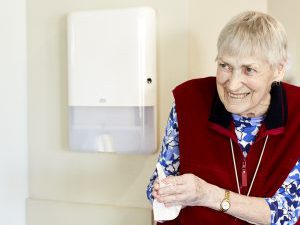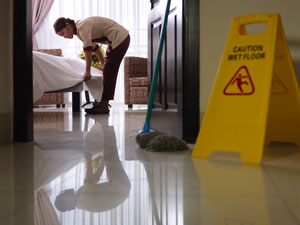
The Australian Council of Trade Unions (ACTU) is calling for paid pandemic leave to be extended to all workers who need to self-isolate due to COVID-19.
It follows the Fair Work Commission’s (FWC) ruling earlier this week to grant the entitlement to aged care workers to enable them to self-isolate when required. The amendments came into effect from Wednesday, July 29, and will last for three months.
The ruling grants paid pandemic leave to staff working in residential aged care under the Aged Care Award, the Nurses Award and the Health Professionals Award.
The paid leave is available to full-time and part-time employees, and casuals that have been “engaged on a regular and systematic basis”. For casuals, the payment will be based on average earnings over the previous six weeks.
If a worker tests positive for coronavirus, workers’ compensation leave will replace the paid pandemic leave. Other conditions of the paid leave include:
- Workers must be aged 17 years old or more and be likely to have worked during the self-isolation period or quarantine
- Workers cannot be receiving any income, earnings or salary maintenance as a result of not being able to work during the period of self-isolation or quarantine;
- Workers cannot be receiving a JobKeeper payment or other forms of government income support.
“There is a real risk that employees who do not have access to leave entitlements might not report COVID-19 symptoms which might require them to self-isolate, but rather seek to attend for work out of financial need,” the FWC said in its decision.
“This represents a significant risk to infection control measures.”
Sally McManus, ACTU secretary, said the problem of workers having no leave goes beyond the aged care sector.
“We welcome this decision, but it still does not remove the trap door for casual workers with irregular hours, or workers in other industries,” McManus said.
“Paid pandemic leave is a crucial public health measure that provides a circuit breaker to stem the rate of transmission by allowing those with symptoms to stay home without losing income.”
“No worker should be left considering if they should go to work with mild symptoms to pay the bills.”
It follows the release of a new national survey of more than 1000 aged care workers conducted by United Workers Union. The survey was conducted in May and June, with responses from every state and territory predominantly made up of United Workers members in Queensland, South Australia and Western Australia (residential) and NSW (home care).
According to the findings, three in 10 residential aged care workers said they had received no additional training in coronavirus safety measures or correctly using personal protective equipment. More than two thirds of aged care workers do not feel very prepared to deal with a coronavirus outbreak, while one in three home care workers said they did not have enough supplies of hand sanitiser and gloves.
The survey also raised structural issues that make stopping coronavirus and keeping aged care staff challenging. Nine out of 10 workers said they could not afford to take unpaid leave, while nine out of 10 workers are worried their colleagues may have to work if they have mild symptoms because of a lack of leave. Only 16 per cent of workers report their providers have offered some form of paid pandemic sick leave.
Earlier this week new research revealed that, as more people head back to the workplace, 70 per cent of Aussies have said they would present to work with cold or flu symptoms. The findings came from an independent survey – conducted in June this year – of a nationally representative panel of 1000 Australian employees, commissioned by specialist cleaning company Cleancorp.
Comment below to have your say on this story.
If you have a news story or tip-off, get in touch at info@3.106.117.80.
Sign up to INCLEAN’s newsletter.




